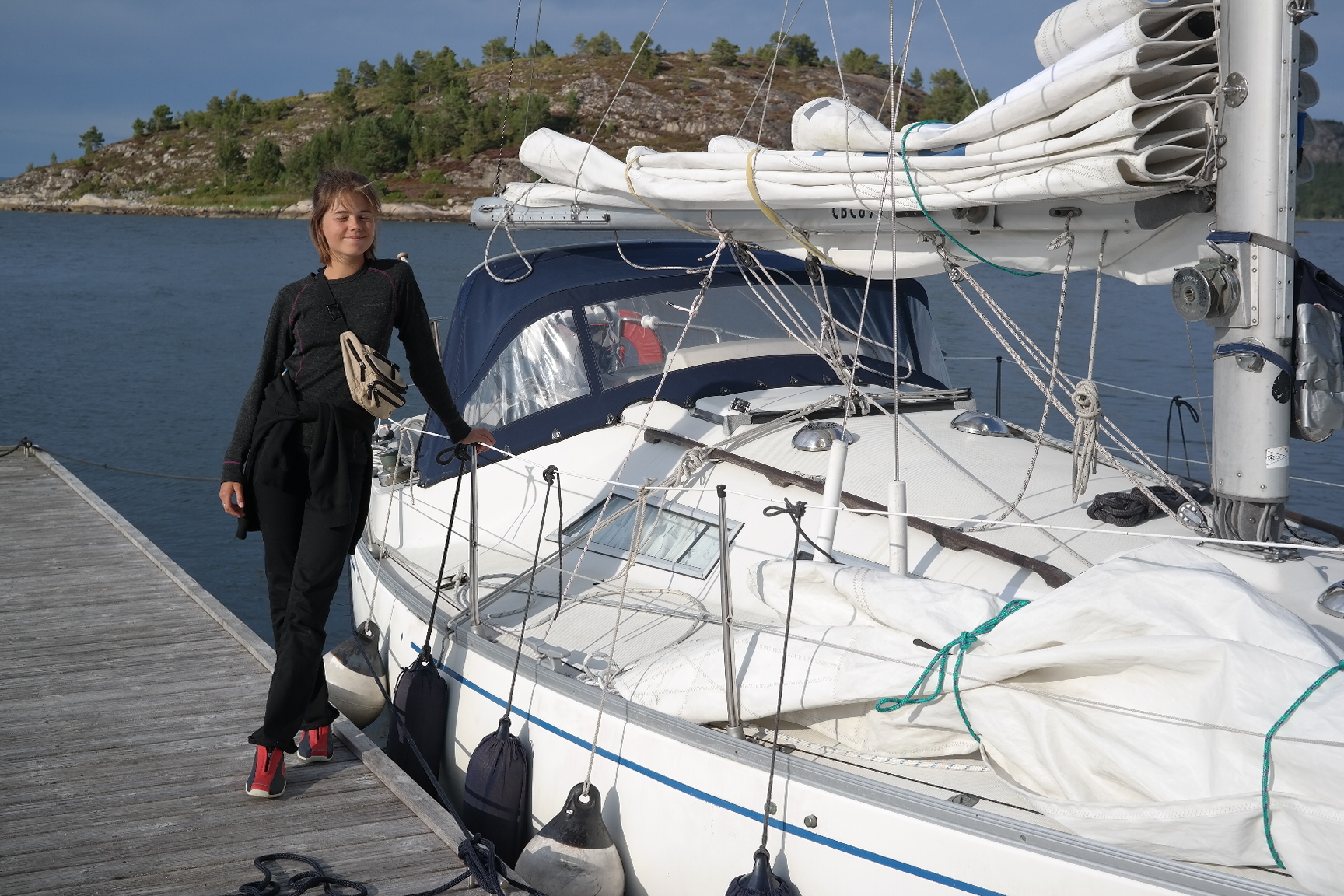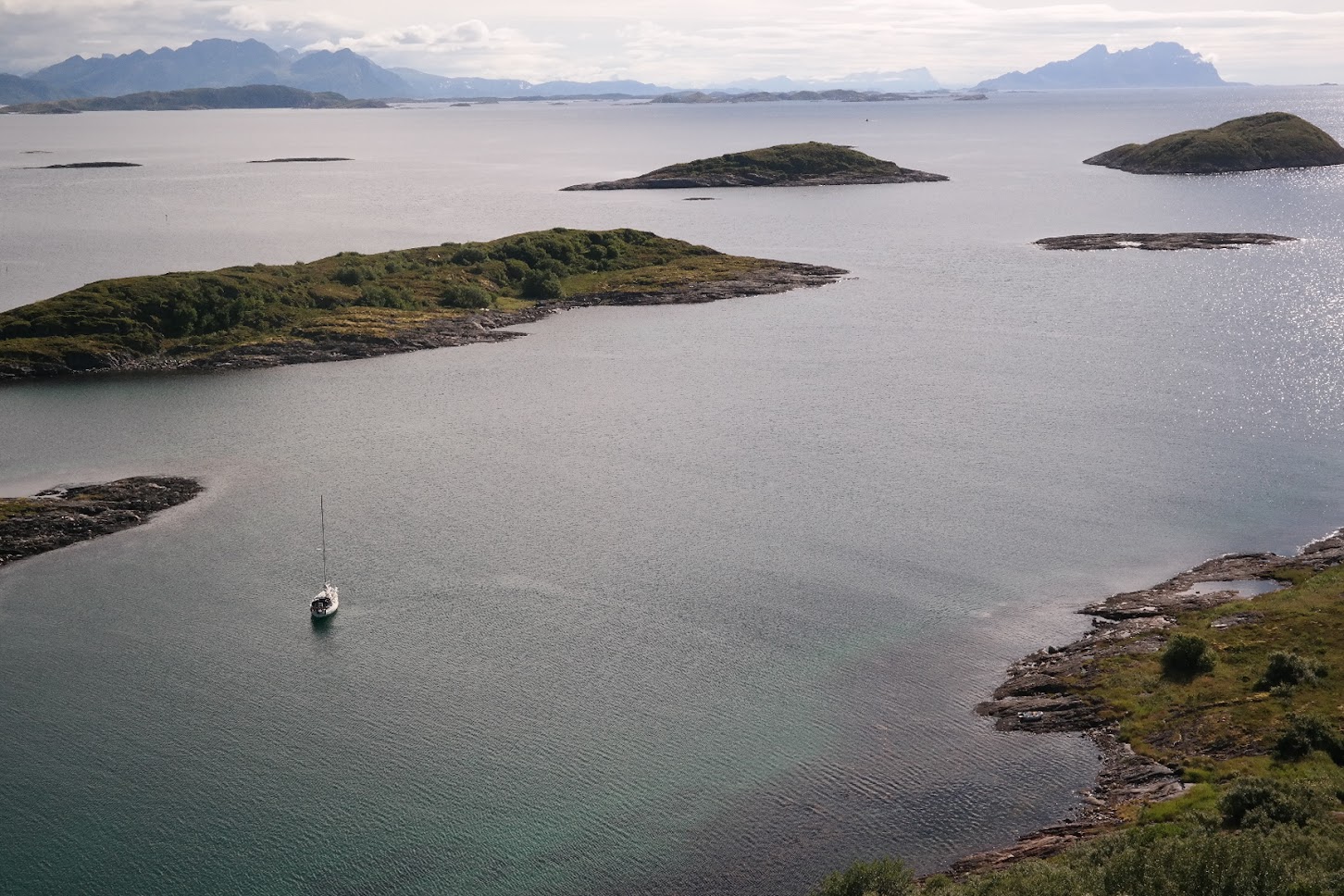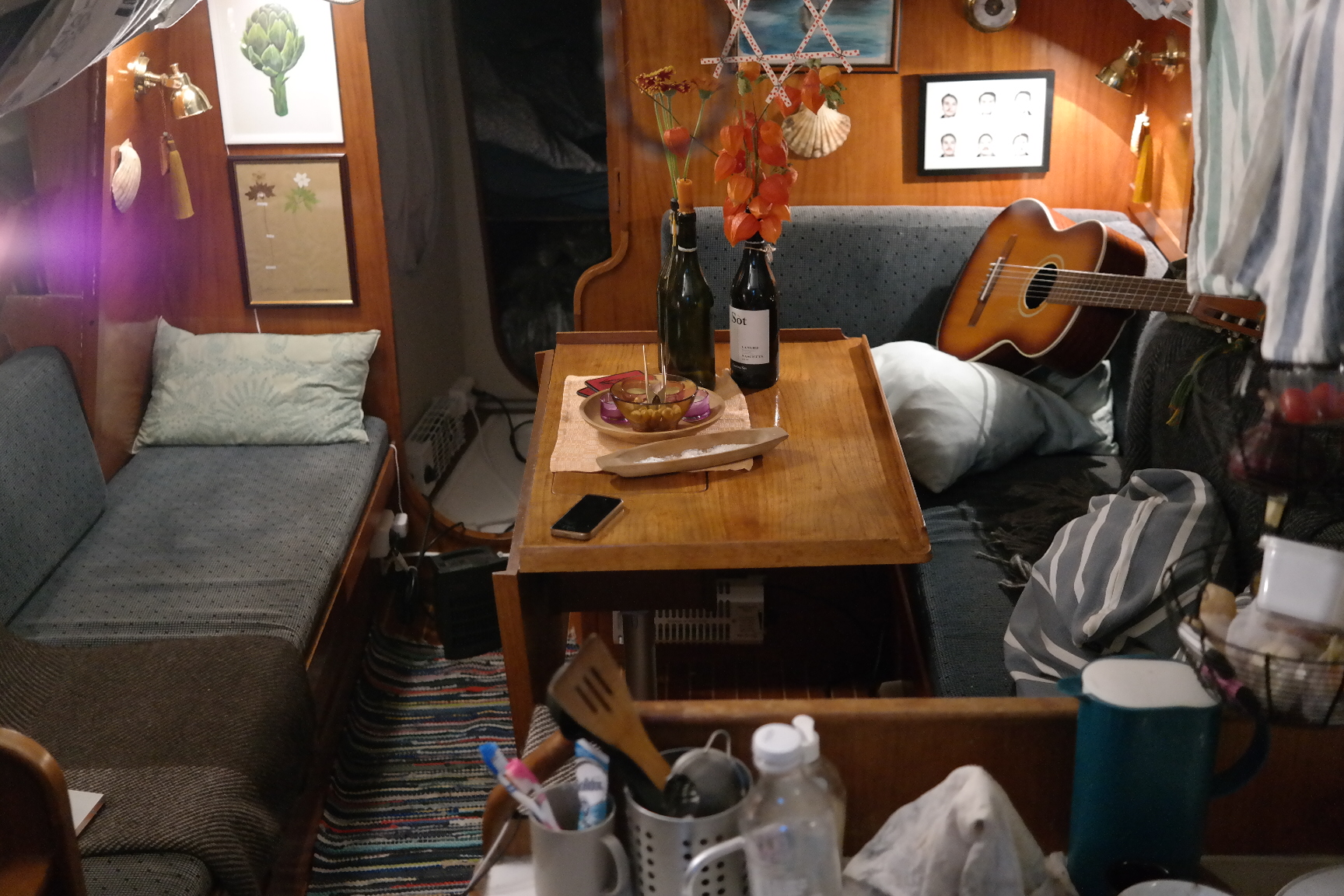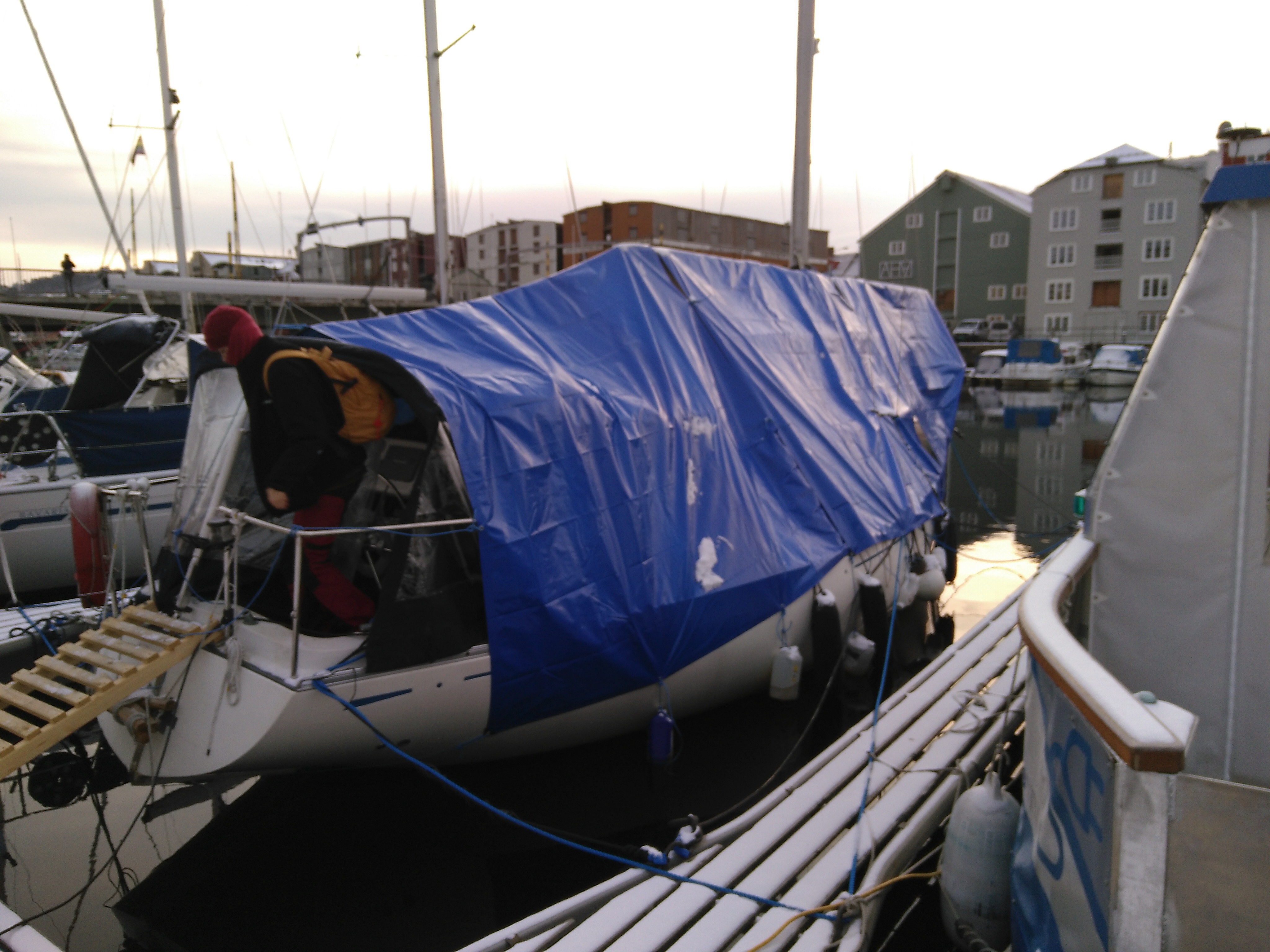What sailing can teach you
Published: 10. September 2024
Almost ten years ago I had my first sailing experience, I got in touch with a guy on a circumnavigation who was looking for a crew to join him around South America. This two-month experience took me from Montevideo, around the Cape Horn and all the way up to Puerto Montt had a huge impact on my life. A couple of years later my partner and I bought an old, rusty, moldy sailboat from the 70s and moved into it. We lived in it for 18 months, through two cold Norwegian winters and one pandemic. I finished my master’s thesis and started a PhD while my partner switched careers and started studying architecture. We sailed several thousand nautical miles those years, from Oslo in the south all the way to Senja in the north.
Getting into sailing has been a tremendous learning experience, especially since I did not grow up around boats. It has impacted my outlook on life in several ways.
1. The Tao of Sailing
Ingrid and SY Tao
This naked dependency on Nature immediately conflicts with our obsession with making plans. Having too many and too rigid plans is a guaranteed way to ruin a sailing.
I once heard a recording of Alan Watts comparing Taoist practice and sailing. Taoism is all about letting things unfold effortlessly and naturally and not force anything. It is about cutting wood with, not against, the grains. The Taoist sailor doesn’t make rigid plans, he goes where the wind is blowing. He doesn’t waste time looking at the ten-day wind forecast, it is going to change anyways.
2. Slow travel
SY Tao at anchor
This summer we sailed to the Lofoten islands in northern Norway a route taken every winter by countless coastal farmers going back as far as the Viking era around the year 1000. Traveling the same distance, albeit in a modern iron-keel sailboat with GPS, autopilot, reliable weather forecasts and digital maps, has given me a tiny glimpse of the the kind of reality these fishermen were inhabiting.
3. Limits of consumption
Inside SY Tao
Most boat has a 12V electric system fed by one or more batteries. The batteries can be charged from several sources such as the alternator on the diesel engine, solar panels, or 240V shore power. When traveling and living on the boat you must always consider the state of charge of your batteries and adjust consumption or production based on it. Acid-lead batteries, which are still the most commonly used, can get ruined if they are depleted of energy. Again, this fundamentally shifts your perspective on usage of electricity.
Common for these resources is that if you are a normal person living in an apartment in Norway you will tend to consider them limitless. When you open a faucet you dont think about where that water is coming from. When you flush your toilet you do not ponder where it is going. When you plug in your laptop charger, you don’t consider that there might not be power available at this moment. A lot of engineering effort goes into presenting consumers living in apartments with the illusion of a limitless supply of these resources. At the same time, we know that we are overconsuming the very same resources.
This line of thinking is inspired by Hundred Rabbits
4. Collectivism arises out of a need
SY Tao prepared for Norwegian winter
I have spent quite some time trying to understand why this particular neighborhood was so great. I do not believe it was only a coincidence and that we were just lucky to live next to exceptional people. Rather, I think that the collectivism arose out of need. For instance, to fill freshwater mid-winter we needed a water hose that was ice-free. The solution was to store a long freshwater hose in one of the larger motor boats. Once we had this out, we might as well fill up all the boats while we’re at it. When hoisting my partner up in the mast to inspect the rigging we needed some additional pair of hands for safety.
For the first time in my life, I felt dependent on my neighbors, this dependency led to strong connections and what I hope to be life-long friendships. It also spawned our interest in more communal living and our current search for an eco-village to settle down in. More on that later.